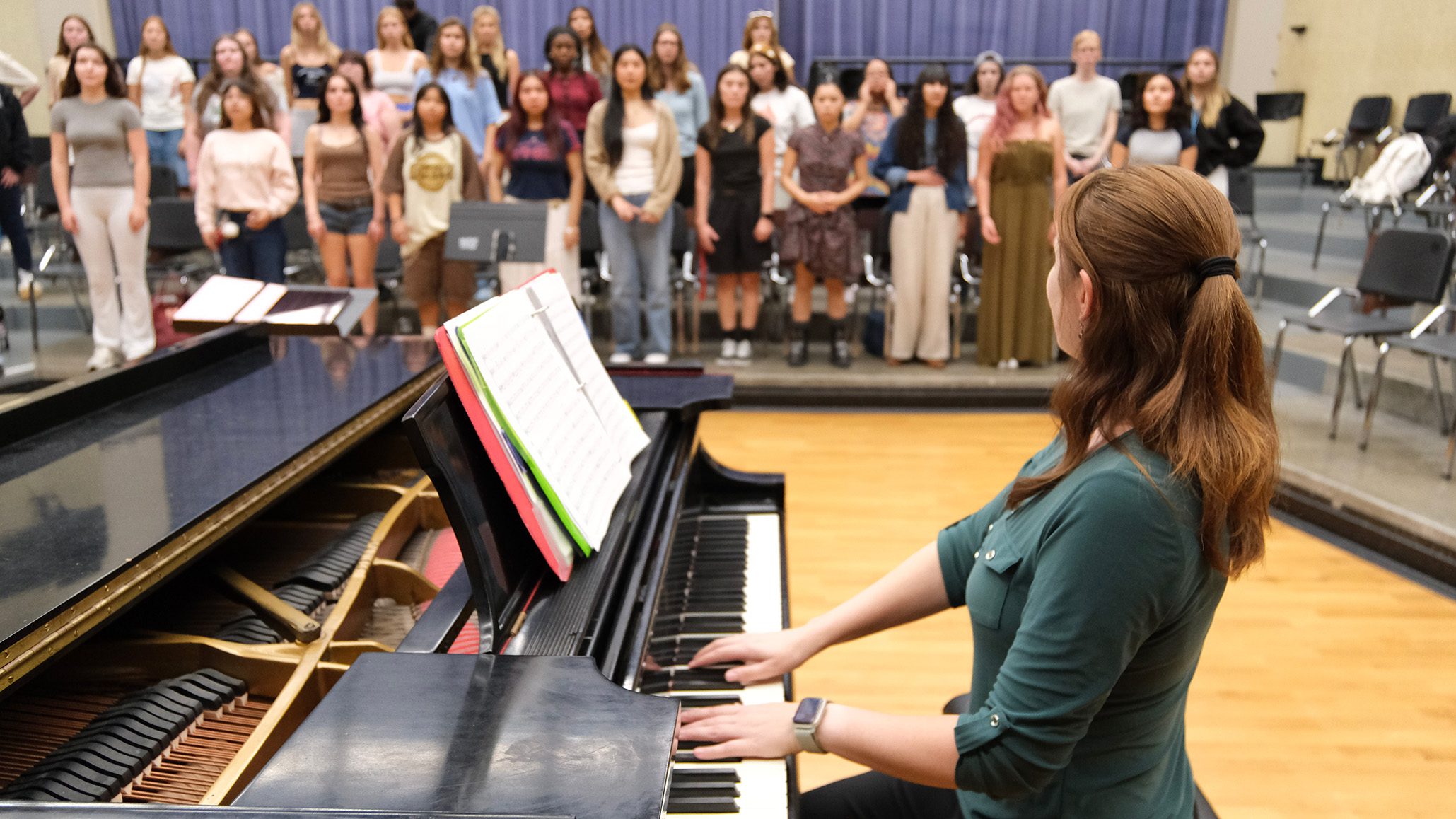Alumni's Note Card Project Hits Home
Handwritten messages to 2,114 residence hall students sought to make a personal connection during tough times.

“We wanted to show them we empathize with them, we care about them, and we know it has been tough.”
Over the past year, San Diego State University has had a quieter environment than former students might remember. Due to the COVID-19 pandemic, most classes are being taught virtually and fewer students filled the residence halls.
With pandemic precautions cancelling large in-person events and prompting the closures of several nearby restaurants, the subdued social scene became a topic for members of the SDSU Alumni Board of Advisors last fall.
“We knew a lot of students were isolated in the dorms and feeling alone. We wanted to show them we empathize with them, we care about them, and we know it has been tough,” said Alumni Board President-elect Charlotte Ochiqui (’00). “We brainstormed and I pushed the idea of connecting with students in a personalized way by writing notes.”
Thus, the note card project was hatched. During late fall semester and over the winter break, two dozen alumni board members, SDSU Alumni staff and members of The Campanile Foundation board of directors composed individual, handwritten messages of encouragement to every student living in campus residence halls.
RELATED: 2021 Day of Giving Sets Participation Record
That’s 2,114 personal notes penned on SDSU Alumni cards with Aztec Proud stickers tucked inside, delivered to residence hall mailboxes after students began the spring semester.
Optimism and universality
For privacy, resident assistants (RAs) provided only the first names of students on their floors along with messaging suggestions for the writers.
“We can’t connect back to them in any way,” said Alumni Board President Chiloh Baty, who wrote 82 cards.
“I put myself in their shoes,” Baty said. “I tried to relay the sentiment that we really do care that they are doing well and are able to focus on school. We know it’s hard in such an isolated situation, but it won’t always be this way.”
Former Associated Students President Kelli Kedis Ogborn (’05), who now lives in Washington, D.C., requested 105 note cards, which she filled with messages of hope and encouragement and sent back to San Diego for campus distribution. Kedis Ogborn said she tried to communicate a sense of universality and optimism.
“Every person on the planet is dealing with the same things and some of the troubles the students might be having on campus, we are all having,” she said. “Theirs will be a different college experience, but it can still be an experience they can make their own and have it be memorable.”
Being recognized
Third-year student Sarah Williams has lived on campus for her entire student experience, the past two years as an RA in South Campus Plaza.
Despite the pandemic, Williams said she feels safe on campus, loves her RA job, and enjoys being at SDSU as she pursues a double major in business administration and theatre arts. But, she admits, there have been some adjustments since what she calls “the normal time” before the pandemic.
“I have made a homey space for myself, but there’s definitely an overlap of where you work and where you live,” she said. “You go to school where you live, you eat where you live, everything happens in one space with overlapping boundaries.”
The note card writers were tipped off to card recipients who were RAs, so those notes included messages of thanks for their work. When Williams received her note card, that’s what resonated most with her.
“We don’t often get recognized for our work, but my letter talked about continuing to help others and my commitment to students living on campus and that really made me feel good,” she said. “I am trying to help students on campus adjust to college life and hopefully make it feel somewhat normal for them, so to be recognized for the hard work was really nice and much appreciated.”
Her response to the note card writers is heartfelt: “A huge thank you because I know that a lot of effort, love, and support was put into those letters,” she said. “And they are all so nicely handwritten, it’s amazing.”
Ochiqui wrote more than 100 note cards with no expectation of hearing back from any students but dedicated to getting a message across.
“I got a hand cramp halfway through,” she said. “But if I was able to build support, encouragement, and affection for the students who are dealing with this very crazy academic school year, then I think it was well worth the effort.“



